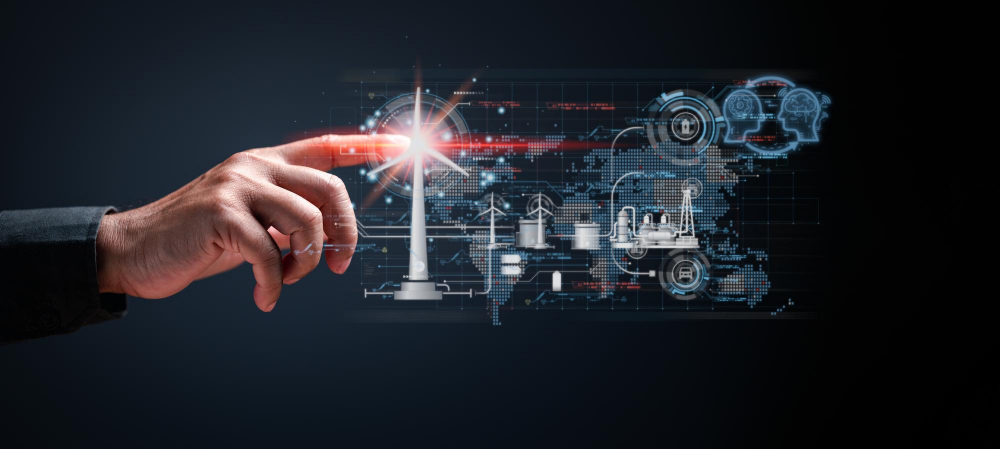- Blog
- July 16, 2025
GenAI for enterprise automation: Boosting productivity with Smart agents

- Blog
- July 16, 2025
GenAI for enterprise automation: Boosting productivity with Smart agents
As enterprises pursue greater agility, efficiency, and customer-centricity, traditional automation approaches are reaching their limits. Rule-based bots and legacy systems often struggle to adapt to dynamic business needs. Enter Generative AI (GenAI) — a new era of enterprise automation powered by smart, context-aware agents capable of understanding, reasoning, and acting like never before.
This blog explores how generative AI is redefining enterprise automation through intelligent smart agents—digital workers that not only execute tasks but learn, interact, and optimize business outcomes. From customer support to internal operations, these AI-driven assistants are proving to be game-changers for organizations seeking to boost productivity and deliver value faster.
Understanding GenAI and Smart agents
Generative AI encompasses advanced models such as GPT, Claude, and Gemini, which are capable of producing human-like text, images, code, and other content. But when applied to enterprise environments, its real power lies in smart agents—autonomous digital entities designed to perform complex, repetitive, or decision-based tasks by understanding context, adapting to inputs, and continuously learning from interactions.
Unlike traditional bots that follow fixed scripts or rule-based automation, AI-powered smart agents are dynamic. They can process unstructured content (emails, documents, conversations), interpret intent, and make informed decisions—often without human intervention. These assistants act as digital co-workers, streamlining workflows, reducing delays, and empowering teams across departments.
Challenges solved by AI-Powered agents
Despite ongoing investments in automation, many enterprises continue to encounter inefficiencies in daily operations. AI-powered agents are helping to resolve these persistent issues by addressing the following challenges:
Routine task overload: Employees often lose valuable time to repetitive tasks like responding to standard queries, processing forms, or entering data. AI assistants can automate these activities, enabling teams to focus on work that drives innovation and impact.
Disconnected Data sources: Business information is frequently scattered across tools and platforms, making it difficult to retrieve or apply efficiently. Intelligent agents unify access to this data, extracting insights and delivering them when and where they’re needed.
Delayed response and service gaps: Slow internal support—whether in IT, HR, or customer service—reduces overall productivity. AI solutions provide continuous, on-demand support, improving resolution speed and reducing dependency on manual intervention.
Lack of personalization: It can lead to user frustration and reduced engagement. In contrast, AI agents enhance interaction by adapting to individual behavior and past activity, enabling responses that feel personalized and contextually relevant.
Key use cases of AI-Powered Agents
AI agents are transforming how departments operate by automating complex tasks, streamlining communication, and enhancing decision-making. Here’s how different business functions are leveraging them:
-
1. Customer support
Conversational AI handles queries across multiple channels—resolving issues, tracking orders, and processing requests—while learning from each interaction to continuously improve service quality and user satisfaction.
-
2. IT operations
Digital agents troubleshoot technical problems, recommend solutions, and initiate actions like access provisioning or password resets. This helps decrease support ticket volume, allowing IT teams to focus on higher-value, strategic initiatives.
-
3. Human Resources
From answering benefits questions to guiding new employees through onboarding, AI assistants enhance HR efficiency by providing consistent, 24/7 support and reducing administrative overhead.
-
4. Finance and Procurement
In finance, AI can extract and validate invoice data, manage payment approvals, and flag inconsistencies. In procurement, it helps compare vendor contracts, assess risks, and generate timely reports.
-
5. Sales and Marketing
AI tools assist sales reps by qualifying leads, drafting proposals, and analyzing customer data. Marketing teams use them to create content, interpret campaign performance, and optimize outreach strategies.
How AI-driven agents boost productivity
Adopting AI-powered agents in enterprise automation delivers more than just convenience—it drives measurable improvements across workflows, employee engagement, and service delivery. These digital assistants streamline operations while enabling teams to focus on higher-value work. These are the main benefits organizations can expect to gain:
Faster, more efficient operations: Automating repetitive tasks enables teams to respond quickly, reduce delays, and lower operational costs.
Enhanced workforce productivity: By automating routine tasks, AI agents enable employees to concentrate on strategic initiatives, creative problem-solving, and customer engagement.
24/7 service availability: These digital workers operate continuously, ensuring uninterrupted support and faster resolution times—regardless of timezone or shift schedules.
Smarter, Data-driven decisions: With the ability to access and interpret real-time information, AI agents support faster and more informed decision-making across functions.
Effortless scalability: As business demands grow, intelligent agents scale without additional headcount—making them ideal for high-growth or seasonal workloads.
Best practices for deploying AI-Powered Smart agents
Successfully integrating AI agents into enterprise workflows requires more than just technical implementation—it demands a thoughtful strategy aligned with business goals. Below are proven practices that can guide organizations toward a smooth, value-driven deployment:
- 1. Target high-impact, Low-risk use cases first: Start with well-defined processes such as IT support, HR FAQs, or routine finance approvals. These early wins help build confidence and showcase immediate ROI.
- 2. Connect to core business systems: Seamless integration with platforms like ERP, CRM, and ITSM ensures that agents have real-time access to accurate data, enabling them to take meaningful actions end-to-end.
- 3. Train with domain-specific knowledge: Feed your agents contextual data—such as company policies, industry regulations, or customer FAQs—to ensure relevance, accuracy, and compliance in every interaction.
- 4. Maintain human oversight: Establish clear handoff protocols and review checkpoints, especially for sensitive or complex decisions. Human-in-the-loop safeguards ensure control and accountability.
- 5. Build with security and governance in mind: Implement robust access controls, audit trails, and compliance policies from the outset. Adhering to standards like GDPR or HIPAA protects both your data and your brand reputation.
The future of enterprise automation with GenAI
Generative AI and smart agents are transforming enterprise automation—moving beyond simple task execution to become strategic co-pilots that support decision-making and enhance agility. By integrating with core business systems, these agents can surface insights, automate complex workflows, and adapt in real time.
This evolution is not just about efficiency—it’s about building intelligent, scalable operations that respond to change faster and smarter. However, success requires a responsible approach: transparency, ethical design, and human oversight must guide every deployment.
Enterprises that embrace this shift are positioning themselves for long-term competitiveness—where human talent and AI work side by side to unlock greater productivity, innovation, and growth.




